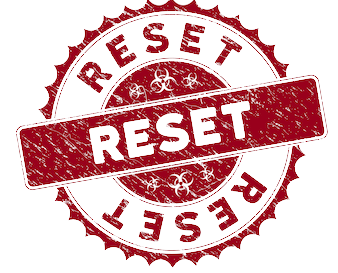| Consider THIS Before Choosing a Brokerage Account - The extra services offered by some brokerage accounts…
- What you want from a stock broker…
- The one route I am not a fan of….
Recommended Link
Every American should pay attention to this 
Government insider Jim Rickards has just issued a MASSIVE prediction. A prediction that could dramatically change your financial life for the better IF you know exactly what to do. He’s revealing all of the details and how you can position yourself for exploding profits in the video above. | |

Dear Penny Stock Millionaire, Every broker handles fees and requirements differently. There aren’t any overall industry standards, necessarily, except what’s required by the Securities Exchange Commission. Today, let’s take a closer look at the types of brokerage accounts available to you and their components. Brokerage Account Fees, Costs and Incentives Lots of companies (including our example from yesterday, E*Trade) offer incentives to get traders to join. These incentives might include access to market news and data, commission-free trades when accounts are opened with certain minimum deposits, and more. Traders typically have to pay fees in exchange for using the broker. For example: Brokerage accounts can have maintenance costs, which are annual or monthly fees traders pay for keeping their accounts open. Traders will also need to pay for trades, whether per trade (no matter the position) or per share (which I typically don’t recommend). Services Offered Lots of brokers offer extra services. Some provide free investment advice, such as a 30-minute phone call with a professional advisor. Others have trading platforms where traders can paper trade, check Level I and Level II quotes, and more. Commission Fee Basis Most brokerage firms charge a commission fee for every trade you make. Currently, the average tends to hover at just under $7 per trade. It doesn’t matter if you trade 10 shares or 5,000 shares — you usually pay the same fee as long as you make the trade at the same time. In other words, if, for example, you buy 5,000 shares of a stock in two 2,500-share transactions, you’ll probably pay the commission fee twice. Advisory Fee Basis If you want your financial advisor to make trading decisions for you, you’ll often pay far more in fees. I’m not a fan of this route because you don’t actually learn how to execute trades yourself. Instead, you listen to someone tell you what to do — someone who might have an ulterior motive for his or her recommendations. Investment Selection You might also consider choosing a brokerage firm based on the types of investments they allow. Most brokerage firms offer multiple securities, from stocks and bonds to mutual funds, FOREX, and ETFs. How Often You Plan to Trade Consider, as well, how often you intend to trade securities. For example: Some brokerage firms require you to make a certain number of trades every month. Minimums There are a few situations in which you might have to deposit funds into your account to meet minimum requirements set by your brokerage firm. Some firms require minimum initial deposits, which means they require you to deposit a certain amount of money (for example: $10,000 or $20,000) in your account before you can even begin trading. If you’re new to the stock market and you don’t want to fund your account with that much money, then perhaps consider a firm with no minimum deposit required. You might also have to maintain a minimum balance to keep your account active. This is common when you’re trading on margin (something in which I’m not interested) and your position puts you in a situation where your broker makes a margin call. In other words, you must deposit sufficient funds into your account to support the margin you’ve borrowed from your broker. Recommended Link
America's Death Spiral Begins January 15? 
If you’re like most folks, you’re probably wondering how we got here... America’s institutions are rotten to the core. Common sense and human decency are relics of the past. And Americans at each other’s throats. Well, it wasn’t by accident. The prophetic analyst who predicted the subprime mortgage meltdown… the financial crisis of 2008… and Brexit… Says a grand experiment has been conducted on the American people without our consent. And the horrifying endgame is set to arrive on January 15, 2021… Will you be ready? | |
Explore Investing Options You might already know that I trade penny stocks. It’s my bread and butter, and it’s how I made myself into a millionaire**. However, there are many other investment opportunities, and I’ve diversified over the years and tried out different types of investments. Three of the most common investment options include index funds, mutual funds, and ETFs. Index Funds An index fund is a stock market fund that’s based on a specific index, such as the S&P 500. It demands passive fund management, which means it’s a fairly simple choice for new investors, and often carries low risk. So if you’re a conservative investor, index funds can be a wise choice. Mutual Funds A mutual fund, just as the name suggests, is an investment vehicle that pools money from multiple investors. There’s a manager who decides how to invest that money for maximum gains and minimum risks. This is another fairly low-risk option for investors. ETFs Exchange-traded funds, or ETFs, are very similar to index funds and mutual funds except that they’re traded on an exchange just like a stock. They’re more liquid than mutual funds, which means that they can sometimes offer greater rewards, but rapid price fluctuations also introduce more risk. How Much Does it Cost to Open a Brokerage Account? In most cases, it won’t cost you anything to open a brokerage account. If you’re using one of the common online brokers, you can usually get your account set up with no minimum deposit. However, if you want to trade, you’ll have to fund the account. The fees come into play when you trade. The brokerage account doesn’t let you use its services for free; it expects to make money on each trade you make. Think of it as the cost of doing business. Brokerage Account Comparison: Top Brokerage Accounts I don’t often give my opinion on specific brokerage accounts, but I’ve used several with great success. I mentioned them earlier in this article: E*Trade, TD Ameritrade, and Interactive Brokers. However, if you’re new to the stock market, or if you want more market data and information than these brokers provide, you might want to use a trading platform, as well. You can paper trade if you’re a beginner and not ready to put your money behind your positions. Plus, you can access endless amounts of stock charts, check out the latest news, and create watchlists. Tips on Opening a Brokerage Account Before you open a brokerage account, ask yourself if you’re really ready to trade. There’s no time like the present, but you need knowledge and research under your belt. Too many new traders just start buying and selling securities with no real rhyme or reason. They can flame out fast — trust me, I’ve seen it. If you think you can avoid that and open a trading account, go for it. Recommended Link
Are You Ready for the Great American Reset? 
According to these two financial experts, something is about to happen that will change America forever… Something they call “The Great American Reset of 2020.” Click below for all the details and the 5 steps they recommend you take now. | |
Look for a Brokerage Account with Low Fees or No Fees It’s ideal to pay as little as possible to trade stocks. There are actually free brokerage firms, such as Robinhood, but you should remember that you get what you pay for. Free brokerage firms limit what you can do and how much money you can invest. Pay Attention To Customer Service The stock market moves fast, especially when you’re trading small-cap stocks like me. It’s important to make trades at the drop of a hat to help capitalize on good positions. That’s why good customer service is paramount when it comes to choosing a brokerage account. Make sure the company you choose one will be responsive when you have questions or experience technical difficulties with your account. The Bottom Line Do you need a brokerage account? If you want to trade stocks, absolutely. There’s no way around it. I’ve been trading penny stocks and other securities for years, and I always have multiple trading accounts open. They allow me to be as flexible as possible when it comes to making decisions about potential investments. If you’re new to the game, consider getting started with paper trading. Educate yourself, research, learn from top traders, then, if you’re ready, you can open your own trading account after you’ve successfully practiced paper trading. You’ll thank yourself later. Tim Sykes
Editor, Penny Stock Millionaires P.S. Jeff Bezos, the man who disrupted the retail industry... Is all set to disrupt another $2 trillion industry. In the process, he’s helping create a bunch of new opportunities. And as usual… the mainstream media is not telling you the whole story. They are giving you bits and pieces and expecting you to connect the dots. But don’t worry! You can get the full story right here, packed with aerial images, important dates, and even rare patent pics. Look, from my past experience... This could be pulled off the internet at any time... Click here now to see it while you can. |
No comments:
Post a Comment